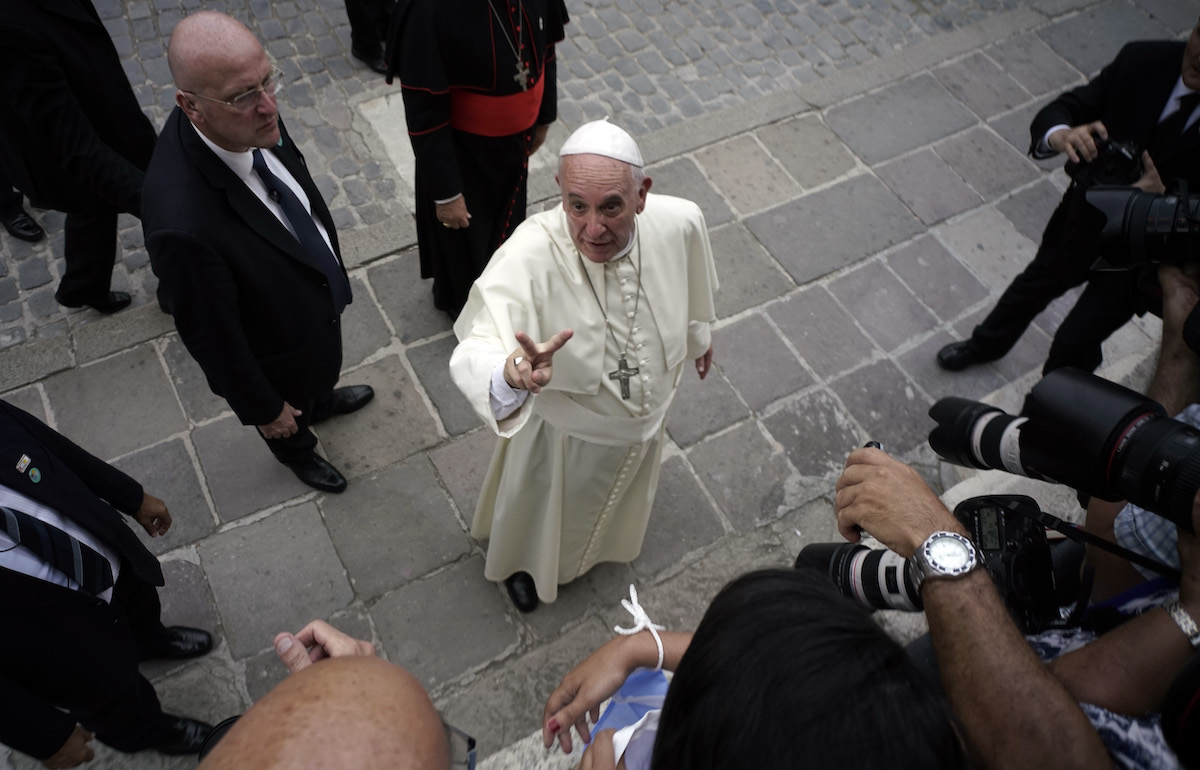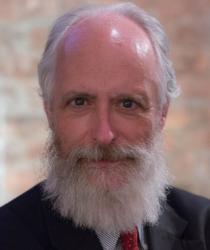In the classic way of religious institutions, the pope picked up the term just as it seems to be going out of regular usage. It feels a bit like yesterday’s news. “Cancel culture.” It wasn’t just that the pope said it, I think, but that this liberal pope said it. If even Francis attacked cancel culture, it must be bad. Especially as the way he spoke of it let both right and left find confirmation of their views.
The New York Post took advantage of the pope’s “scathing remarks” to make a claim of its own. Its news story ended: “His warning also comes after protests across the US saw statues of historical figures removed or defaced. Schools, hospitals and other buildings also saw their names changed to remove references to now-controversial historical figures.”
The British newspaper The Independent gave a leftish take: “Cancel culture broadly refers to the popular practice of withdrawing support for high-profile figures or enterprises after they have said or done something considered controversial or offensive.” Considered by whom, the newspaper does not say, but in reality it usually means liberals and leftists. It implied by its wording that J. K. Rowling was reasonably canceled for “her views of transgender rights,” but that the removal of statues in the U.S. and the U.K. wasn’t canceling.
But back to the pope. Francis was giving his annual talk to the diplomats accredited to the Holy See (as a state, not a religious institution). You wouldn’t think such a gathering would prompt remarks on cancel culture, but it did. The relevant comments begin, about halfway through the talk, with a criticism of international organizations. They don’t get as much done as they should, he says, partly because their “centre of interest has shifted to matters that by their divisive nature do not strictly belong to the aims of the organization.”
Their agendas “are increasingly dictated by a mindset that rejects the natural foundations of humanity and the cultural roots that constitute the identity of many peoples.” He first calls this “a form of ideological colonization, one that leaves no room for freedom of expression.” Then he speaks directly of “cancel culture,” a term he spoke, for some reason, in English.
This colonization “is now taking the form of the ‘cancel culture’ invading many circles and public institutions. Under the guise of defending diversity, it ends up canceling all sense of identity, with the risk of silencing positions that defend a respectful and balanced understanding of various sensibilities. A kind of dangerous ‘one-track thinking’ is taking shape, one constrained to deny history or, worse yet, to rewrite it in terms of present-day categories, whereas any historical situation must be interpreted in the light of a hermeneutics of that particular time, not that of today.”
Francis then applies this to his subject. “Multilateral diplomacy is thus called to be truly inclusive, not canceling but cherishing the differences and sensibilities that have historically marked various peoples.” He goes on to call, as recent popes have often done, for “dialogue and fraternity.” That subject takes up the last third of his address.
Whom and what were the pope talking about? That’s usually the question, especially with Francis.
Usually the question because such papal statements are intended to give general instructions and leave the application to others. They’re like the detailed examination of conscience Catholics use before going to confession, a list of sins you may have committed and prayerfully reflect upon in your individual circumstance. Did the pope give examples of the “whom and what,” the reporters and the general reader would focus on those and not on the teaching.
Especially with Francis because he rarely makes clear the logical connection between his remarks. They all have something to do with the general subject, but how exactly one relates to another, who knows. He has an observant mind, but not a systematic one. He’s not Benedict, whose clarity spoiled those of us who like that sort of thing. (I don’t think this the problem others do, for what it’s worth. With Francis you get insights you can use, even if he doesn’t answer every question you have about the subject.)
“I wish to mention in particular the right to life, from conception to its natural end, and the right to religious freedom,” he says, but then doesn’t do anything else with those matters. He then talks at greater length about “the urgent need to care for our common home.” Given other comments he’s made over the years, I’m guessing he’s also thinking of organizations favoring legal abortion and gender ideology in the countries they’re supposed to be serving.
Is Francis right? His criticism of “cancel culture” must have disconcerted some conservative American Catholics, whose default mode of reacting to the pope is: Francis said it, therefore Francis is wrong. And he did begin with that suspiciously lefty term “ideological colonization.”
In America, the term “cancel culture” is both a conservative concern and a too-ready-to-hand put-down. It depends on an unacknowledged sense of the boundaries of acceptable cultural discourse and a failure to accept that people with different boundaries will cancel people conservatives wouldn’t.
As I wrote as a pro-lifer in the Catholic weekly Our Sunday Visitor, we must recognize that we and the pro-choicers hold dueling views of the good, and we’re both responsible for defeating the other view where and when we can. And not just in debate. When the pro-choice owners of the hip D.C. restaurant canceled Democrats for Life’s reservation, they only did what we would have applauded had pro-life owners canceled the reservation for a Planned Parenthood fundraiser.
The right likes cancel culture as much as the left. No one likes being canceled, but nearly everyone, other than an extreme advocate of free speech, feels he ought sometimes to cancel someone else. People can believewhatever they want, but public institutions shouldn’t promote dangerously wrong or vicious ideas. Everyone whose opinion we’d take seriously would denounce a university for making a neo-Nazi apologist a featured lecturer. Few would take “We need to hear what he has to say” and “We must engage him in dialogue” as an excuse. He’s a Nazi. He doesn’t “bring something to the table.”
Conservatives jump to cancel all sorts of people they think have crossed the boundary. And always have. The McCarthy era pursuit of communists in Hollywood was an effort to cancel people who might produce communist propaganda. Christian conservatives wanted Sinead O’Connor banned from public life for dramatically tearing up a picture of Pope John Paul II. Political conservatives objected to Marxists being given positions in public universities, most famously Angela Davis.
If conservatives don’t protest such things anymore it’s because they’ve ceded those institutions to the left. Of course Hollywood and the universities are leftist. What’s the point of complaining, other than getting outrage clicks? Better to direct their efforts to building their own institutions.
But still, the Right wants to cancel what they believe cancellation-deserving people when they can. They accept the principle. They want to cancel Lynne Cheney by pouring money into Montana to defeat her in the election, not just to replace her as a congressman, as they would with any political opponent, but pushed out of the public square entirely. To be shut down and shut up. In the evangelical world, pastors find themselves getting fired for not approving of the “insurrection” of January 6. Conservatives ripped NFL quarterback Colin Kaepernick for kneeling during the national anthem to protest police brutality. Many people, including the then-president (they should throw “that son of a bitch off the field right now”), wanted him out of the league.
Francis is right to call for “fraternity and dialogue,” especially in relation to other cultures, when a wealthier, more powerful culture is tempted to impose its beliefs on those dependent on its aid. The ideological colonizers may believe in theory in cultural pluralism, but they don’t in practice. They don’t know when they do know better (in rejecting female genital mutilation, for example) and when they don’t (in promoting abortion).
But “cancel culture” is a more difficult matter, because some speech should be canceled. The canceling is itself part of the public struggle for the truth. Deciding which speech should be heard and which not heard is one way we negotiate the boundaries of the public square. The negotiation is a hard one because today the left, which dominates the central places where crucial issues are discussed, as conservatives like to remind everyone, takes it as a way to win the public debate by ruling out the alternatives. It’s easier to deny conservatism a voice than to argue with it.

